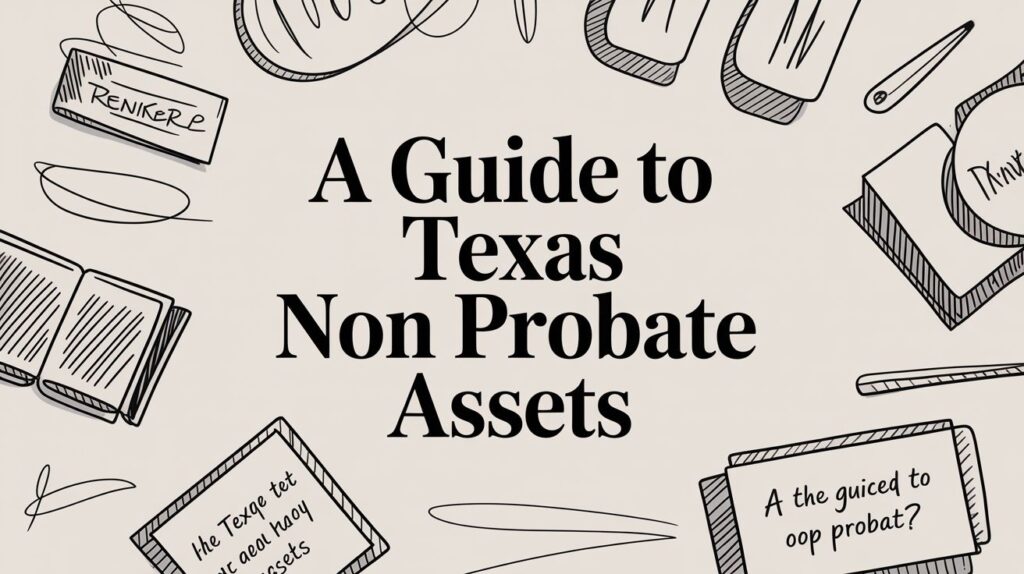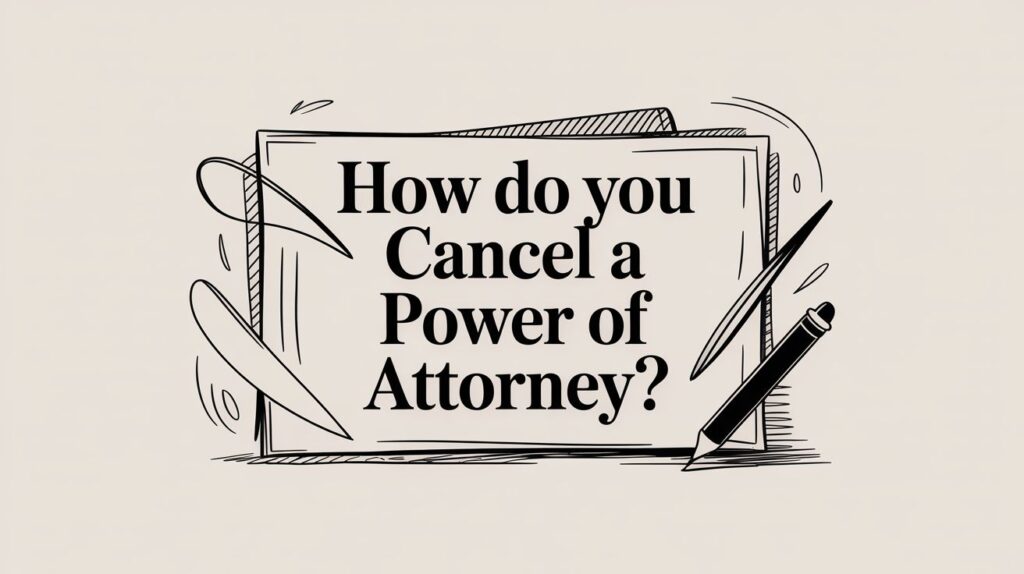If you’ve recently lost a loved one in Cleburne, Burleson, or anywhere else in Johnson County, you may have heard the term “Statutory probate in Johnson County TX” tossed around by attorneys, clerks, or even relatives. For many, those words are as intimidating as they are confusing. But here’s the truth: understanding the difference between statutory probate and independent administration can save families time, money, and stress.
This article is your local guide to what statutory probate means in Johnson County, how it differs from independent administration, and how to make the right choice when navigating the Texas probate system. We’re not just throwing out definitions—we’ll use plain English, relatable scenarios, and a storytelling approach so that even if you’ve never set foot in a courtroom, you’ll feel empowered to move forward.

What Is Statutory Probate in Johnson County TX?
Let’s start with the big question: what is statutory probate in Johnson County TX? At its core, statutory probate refers to the dependent administration process governed by Texas Estates Code. In this procedure, the court supervises almost every step the executor or administrator takes in handling the deceased person’s estate.
Unlike independent administration, where the executor has more freedom, statutory probate in Johnson County TX means the court plays a hands-on role. Every inventory filing, asset sale, creditor payment, and distribution must go through a judge for approval.
This can be a benefit or a burden—depending on your situation.
Why Would Someone Use Statutory Probate?
People generally don’t choose statutory probate unless they have to. It’s usually required in situations like:
- There’s no will or the will doesn’t grant independent authority.
- Heirs are fighting or don’t get along.
- A beneficiary challenges the validity of the will.
- Creditors aggressively pursue debts.
- A minor or incapacitated person is involved as an heir.
In Johnson County, where family farms, oil interests, and real estate often complicate inheritance, statutory probate ensures a judge oversees how the estate gets divided.
Real-Life Scenario: When Statutory Probate Became Necessary
Let’s say James, a retired rancher in Burleson, passes away. His three adult children are named in the will—but two of them disagree on how to handle their father’s land and equipment. One wants to sell everything, the other wants to hold on. The will doesn’t authorize independent administration, and the tension among siblings turns toxic.
The family ends up in statutory probate in Johnson County TX. Now, every major decision—selling the tractor, transferring deeds, paying taxes—requires court approval. It’s not ideal for quick resolutions, but it prevents chaos when trust among heirs breaks down.
Understanding Independent Administration
In contrast to statutory probate, independent administration is a streamlined process available in Texas when certain conditions are met. If the will explicitly authorizes independent administration or if all heirs agree in writing, the executor can act with minimal court involvement.
Key Features of Independent Administration:
- Fewer court hearings
- Faster timeline
- Lower costs
- Executor manages estate with more autonomy
But it’s not just about convenience. When families get along and the estate is relatively straightforward, independent administration makes the probate process more efficient.
So, while statutory probate in Johnson County TX may be required in some cases, many families aim for independent administration when possible.

Comparing the Two Probate Processes
Statutory probate in Johnson County TX and independent administration differ significantly in how they operate, how long they take, and how much they cost. Understanding those distinctions can help families make informed decisions during a time that’s already emotionally and legally complex.
In statutory probate, the court plays a central role. Every major action—selling property, paying debts, or distributing assets—requires judicial approval. This high level of court involvement can extend the timeline, as each step must go through hearings and legal filings. Naturally, this also means higher legal expenses, since attorneys must file more paperwork and attend more proceedings. Statutory probate is most often used in estates where there is no will, disputes among heirs, or minor or incapacitated beneficiaries involved.
By contrast, independent administration is designed to be quicker and more cost-effective. When a valid will clearly authorizes independent authority, or all heirs agree to it in writing, the executor gains greater autonomy. That means they can manage most estate duties without having to check in with the court at every step. This reduces both the cost and time frame, making it ideal for families who are cooperative and organized.
This comparison matters because the wrong assumption—thinking you can handle everything without court oversight—can lead to serious legal problems. Knowing when court involvement is required and when it can be minimized is key to avoiding unnecessary delays and financial strain.
Filing for Statutory Probate in Johnson County TX
The process begins by filing an application in Johnson County Probate Court. This is typically handled at the Johnson County Courthouse in Cleburne.
Steps in the Statutory Probate Process:
- Filing the Application for Probate
- Court Hearing to Appoint Administrator or Executor
- Posting Notice (required waiting period)
- Inventory, Appraisement, and List of Claims filed with the court
- Notification of Heirs and Creditors
- Court Authorization for Sales or Distributions
- Final Accounting and Closing the Estate
Each of these steps involves court hearings, judicial oversight, and specific deadlines. Missing one requirement can delay the process or even result in removal of the executor.
Common Challenges in Statutory Probate
If you’re involved in statutory probate in Johnson County TX, you’ll want to prepare for a few common challenges:
1. Disputes Among Heirs
Sibling rivalries, old grudges, or differing views on asset value can trigger objections that stall progress.
2. Asset Valuation
In rural areas like Johnson County, where family-owned land and mineral rights are common, appraising assets fairly can be complex and contentious.
3. Out-of-State Heirs
Heirs who live outside Texas may not understand the probate process or trust the local executor. This can lead to delays, legal filings, or even lawsuits.
4. Creditor Claims
Unlike independent administration, statutory probate opens the estate to creditor claims that require court resolution. This can eat into estate value quickly.

Real-World Example: When Independent Administration Worked Better
Mary passed away in Alvarado with a simple will naming her daughter, Karen, as executor. The will clearly authorized independent administration, and Karen worked well with her siblings. They were able to:
- Sell Mary’s home within 60 days
- Pay off final expenses
- Distribute assets fairly without court delays
Because the family cooperated and the will was well-drafted, they avoided the red tape associated with statutory probate in Johnson County TX.
When Statutory Probate Is the Safer Bet
Sometimes court oversight is exactly what a family needs. In emotionally charged estates or when there’s a lack of trust among parties, the structure of court-supervised probate can offer stability.
In cases involving:
- Mentally incapacitated beneficiaries
- Disputed debts
- Allegations of misconduct by an executor
- Contested wills

Statutory probate provides a layer of protection. It forces transparency and gives all parties a legal forum for airing grievances and resolving conflict. This ensures that every major financial decision receives judicial oversight, which can prevent future claims of mismanagement.
For example, if you suspect an executor is mismanaging funds, statutory probate gives you the power to request an accounting and court review. That transparency can also bring peace of mind to beneficiaries who are uncertain about the handling of the estate.
Legal Support Makes All the Difference
Whether you’re heading into statutory probate in Johnson County TX or seeking independent administration, having a knowledgeable probate attorney matters. The legal system isn’t forgiving of procedural mistakes, and a skilled lawyer can help you avoid delays and court sanctions.
A local lawyer understands:
- Johnson County’s procedural preferences
- The probate judge’s expectations
- How to file proper notices, inventories, and motions
- How to communicate effectively with feuding family members
Even if you’re just trying to wrap up a modest estate, local legal guidance can prevent costly errors. Hiring the right attorney early in the process often makes the difference between a smooth probate and one filled with disputes and delays.
Expert Answers to Statutory Probate FAQs in Johnson County, TX
Do I need an attorney for statutory probate?
In most cases, yes. The complexity and court requirements make professional representation almost essential.
How long does the process take?
It varies, but statutory probate can take 9 to 18 months depending on the estate and level of conflict.
Can we switch from statutory probate to independent administration?
Only if the court approves it, and often only with full agreement from all heirs.
Is probate public in Johnson County?
Yes. Probate filings, including wills and inventories, become public record once filed.
Can I avoid probate entirely?
Yes, but only with proper estate planning using tools like revocable living trusts, transfer-on-death deeds, or joint ownership with rights of survivorship.
Final Thoughts: Choosing the Right Path in Johnson County Probate
So, what should you take away about statutory probate in Johnson County TX? It’s not inherently bad—it exists to provide oversight and order during a sensitive and legally complex time. But it’s not always necessary. When a valid will exists and heirs cooperate, independent administration can offer a faster and more cost-effective route.
Whether you’re navigating this process after a loved one’s death or planning your own estate, the key is understanding your options early. A little foresight, clear communication, and legal guidance can go a long way in avoiding the emotional and financial drain of prolonged probate disputes.
At the end of the day, probate isn’t just about forms and filings—it’s about family, legacy, and peace of mind. And in a place like Johnson County, where families often carry generations of stories and assets, getting probate right means everything.








